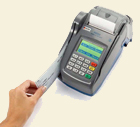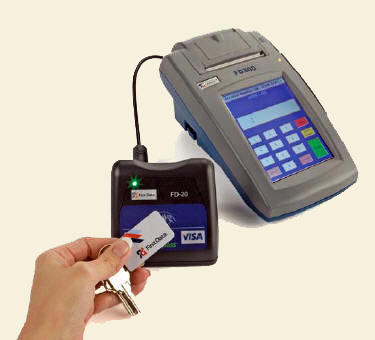
 Setting Up A Merchant Account To Enable
Setting Up A Merchant Account To Enable
Credit Card Processing
At Your Business
If you have any questions, CALL (800) 838-9598 Ext 102 anytime during the process
CardConnect Fairmed Merchant Agreement Application - Tiered (November-2015)
(Click to download PDF) 
Completing the CardConnect Fairmed Merchant Agreement (merchant account application)
Completing the application is a four (4) step process:
- Download the 2011 CardConnect Fairmed merchant agreement application (PDF). This PDF has three parts:
- Cover letter
- Merchant Processing Application and Agreement (MPA) form
- Program terms and conditions
- Complete the four page Merchant Processing Application and Agreement (MPA) using your computer and then print all four pages. (See Merchant Application Notes below for details)
- On a blank check with the same business name and account data that you listed in Section 3 and where you wish the deposits to be made, print VOID on the check.
NOTE: Do not cover up the numbers at the bottom of the check.
Example:
- Fax the entire application (four pages) and the voided check to: (714) 838-8032 for initial review. We will contact you to discuss and complete the remaining sections. Your application will then be sent to FISERV underwriting.
Alternately, you can mail the application and voided check to:
CardConnect Fairmed/Fairmed, Inc.
23151 Alcalde Dr. Suite C-10
Laguna Hills, CA 92653
Merchant Application Notes:
- No changes and/or cross-outs are permitted on the application.
- In Section 1, Merchant Information, be sure to provide your Federal Tax ID#. If you don't have a Federal Tax ID#, provide your Social Security Number (SSN).
- Do not enter any information in Sections 4 (Marketing Method), 5 (Equipment/Software), 6 (Site Inspection), 9 (Optional Services Fee Schedule), 11 (Initial Term of Merchant Agreement), and 12 (Third Party Agreements). We will complete these sections with you as part of the interview process.
- If you currently accept credit and/or debit cards for payments at your store location or online, you must complete Section 7.
- Print your name and sign Section 13 (Signatures) and provide the data required including the date.
- NOTE: Either before or after printing, we highly recommend you save a copy of the application as a backup.
Online merchant accounts that process less than $10,000/month may be approved within 12 – 48 hours. Accounts that process over $100,000/month may require further follow-up.
Payment Card Industry Data Security Standard (PCI DSS) Compliance Program
Protect your business and your customers from rising security threats today! The Payment Card Industry Data Security Standard (PCI DSS) is an information security standard for organizations that handle cardholder information for major debit, credit, prepaid, e-purse, ATM, and POS cards.
Defined by the Payment Card Industry Security Standards Council, the standard was created to increase controls around cardholder data to reduce credit card fraud via its exposure. Validation of compliance is done annually - by an external Qualified Security Assessor (QSA) for organisations handling large volumes of transactions, or by Self-Assessment Questionnaire (SAQ) for companies handling smaller volumes.
The current version of the standard is version 2.0, released on 26 October 2010. PCI DSS version 2.0 must be adopted by all organisations with payment card data by 1 January 2011, and from 1 January 2012 all assessments must be against version 2.0 of the standard.
Note that effective Nov 7, 2011, the penalty fee for PCI non-compliance was raised from $19.95 to $24.95/mo.
Requirements
Version 2.0 has 12 requirements:
- Install and maintain a firewall configuration to protect cardholder data
- Do not use vendor-supplied defaults for system passwords and other security parameters
- Protect stored cardholder data
- Encrypt transmission of cardholder data across open, public networks
- Use and regularly update anti-virus software on all systems commonly affected by malware
- Develop and maintain secure systems and applications
- Restrict access to cardholder data by business need-to-know
- Assign a unique ID to each person with computer access
- Restrict physical access to cardholder data
- Track and monitor all access to network resources and cardholder data
- Regularly test security systems and processes
- Maintain a policy that addresses information security
NOTE: There are additional guidelines for wireless environments.
PCI DSS was developed and is maintained and updated by the PCI Data Security Council. All the current information and documents are available from their website www.pcisecuritystandards.org






